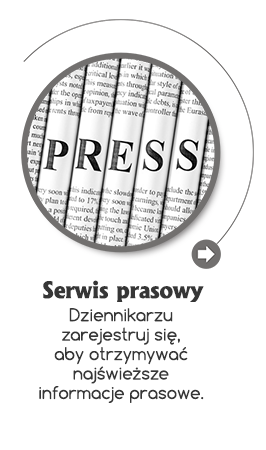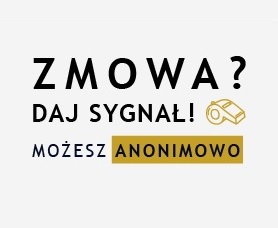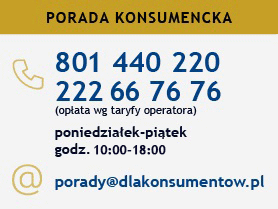Tu jesteś: Strona główna > Urząd > Informacje ogólne > Aktualności
Quality of fuels in 2017
< poprzedni | następny > 20.04.2018

- Last year, the Trade Inspection Authority questioned 2.34 per cent of liquid fuel samples controlled at randomly selected entrepreneurs.
- The result is slightly better than that achieved in 2016.
- The number of reservations concerning diesel was higher than that related to petrol.
The Trade Inspection Authority has scrutinized almost all types of fuels available on the market: diesel, petrol, LPG and biofuels. During the first inspection performed in 2003, the share of liquid fuels that failed to meet the quality requirements equaled 30 per cent. Over time, the number of irregularities discovered was dropping considerably, and has remained, since 2015, below 3 per cent.
“Our inspections contribute to the increasing quality of liquid fuels in Poland. In 2017, only 2.34 per cent of petrol and diesel samples collected at randomly selected fuel stations failed to meet the applicable standards” – says Marek Niechciał, President of the Office of Competition and Consumer Protection.
Quality of liquid fuels is controlled in two ways. Firstly, randomly selected fuel stations are inspected - it seems that this method is most efficient in reflecting the actual picture of the quality of fuels in Poland. Secondly, the Trade Inspection Authority checks those entrepreneurs who have been reported by consumers, law enforcement agencies, or at whom irregularities were discovered during previous inspections.
Randomly selected fuel stations
2.34 per cent of liquid fuel samples collected randomly in 2017 failed to meet the applicable the requirements (2.36 per cent the year before). Similarly as in 2016, the irregularities were more often identified in petrol (1.5 per cent) than diesel (3.44 per cent). The random sample was slightly larger than last year: in total, 939 samples collected at 939 stations were examined by the inspectors.
Most irregularities were identified in the following provinces: Śląskie - 5.68 per cent, Podlaskie – 5.56 per cent and Warmińsko-Mazurskie – 5 per cent of the samples analyzed. None of the randomly collected samples were questioned by the Trade Inspection authority in Dolnośląskie, Kujawsko-Pomorskie, Łódzkie and Opolskie provinces.
The random Liquefied Petroleum Gas (LPG) tests conducted in 2017 have shown irregularities in the case of 2.14 per cent of the samples analyzed (1.42 per cent the year before).
Inspections outside the system – stations about which complaints have been received
As every year, the Trade Inspection Authority is also inspecting those stations that drivers complain about, which are selected by law enforcement agencies, as well as those at which irregularities were identified in the previous years. Out of 718 diesel fuel and petrol samples collected at 624 stations, 3.76 per cent were questioned by the inspectors (a significant improvement has been recorded, as the same share equaled 5.63 per cent the year before). In most cases, the reservations concerned diesel – 4.49 per cent of the samples (5.94 per cent the year before). In the case of petrol, the 2017 inspection revealed a much lower number of irregularities - 2.56 per cent (4.88 per cent in 2016). As far as LPG is concerned, the inspectors questioned 4.55 per cent of the samples, which is an improvement compared to 2016, when the figure equaled 5.36 per cent. The highest number of deviations from quality requirements applicable to liquid fuels was recorded in the following provinces: Lubuskie (22.73 per cent), Podlaskie (13.64 per cent) and Lubelskie (8 per cent).
Parameters questioned
The most frequently questioned parameters included, in the case of diesel: the so-called oxidation stability, i.e. resistance to oxidation stated in hours (the minimum value equals 20 h) and insufficient flash point. Oxidation is manifested by the fuel becoming murky, as well as by resin residue forming in the fuel tank and system. This may lead, inter alia, to clogging fuel filters, contaminating injection valves and to other defects affecting various elements of the fuel system. Insufficient flash point poses the danger of diesel vapor explosion while filling the tank at a fuel station.
In the case of petrol, the tests most commonly disclosed the following: excessive content of aromatic hydrocarbons and improper distillation parameters determining the volatility of petrol. An increased content of aromatic hydrocarbons leads to improper combustion, which results in excessive emission of hazardous substances contributing to the creation of ozone and smog. Distillation impacts the smoothness of the engine’s operation and its ability to produce maximum power. Failure to meet this parameter leads to improper combustion and excessive engine wear.
In the case of LPG, the objections concerned poor results of the copper corrosion test, and the exceeded permissible total sulfur content, which may lead to corrosion of certain engine components.
Actions taken by the Trade Inspection Authority
In 2017, the Trade Inspection Authority issued 7 decisions on withdrawal from the market of liquid fuels which did not meet the applicable standards, and provided the Energy Regulatory Office with information on 69 filling stations and fuel wholesalers where breaches of the terms and conditions of licenses granted for trading in liquid fuels, and of provisions of the Energy Law were identified. The President of the Energy Regulatory Office may impose fines on those entrepreneurs who violate their license conditions by selling improper quality fuels.
Additionally, the Trade Inspection Authority submitted 43 suspected offense notifications to the applicable prosecutor offices. To date, proceedings have been instituted by prosecutors in 28 cases, with 4 indictments brought to court and 19 cases dismissed (including three conditionally), inter alia due to the lack of constituent elements of an offense. A decision to refuse instituting any proceedings has been made in one case. One conviction has been handed down by the court, imposing a fine of PLN 50,000. Four notifications have yet to be examined by the prosecutor offices and courts. The regulations in force provide for severe sanctions for trading in poor quality fuels – a fine of up to
PLN 1 million or imprisonment for the period between 3 months and 5 years.
The results of liquid fuel and LPG inspections described herein are subject to change, as tests of control samples are still under way, as are numerous administrative proceedings conducted by UOKiK. The final results will be published on UOKiK’s website.
2018 - inspections in progress
The first results of fuel quality inspections performed in 2018 (both at randomly selected stations, and at those against which complaints have been filed) are available as well. Between the beginning of the year and 31 March 2018, the Trade Inspection Authority collected and analyzed the total of 349 liquid fuel samples, including 206 diesel and
143 petrol samples. 13 liquid fuel samples (2.72 per cent) failed to meet the applicable quality requirements, including 12 diesel samples (5.82 per cent) and 1 petrol sample
(0.70 per cent).
In the case of Liquefied Petroleum Gas (LPG), the Trade Inspection Authority has collected and analyzed, by 31 March 2018, 9 samples, with all of them meeting the relevant quality requirements.
The audit report is available only in Polish.
Additional information for the media:
Press Office of UOKiK
Pl. Powstańców Warszawy 1, 00-950 Warszawa
Phone: +48 695 902 088
Email: biuroprasowe@uokik.gov.pl
Twitter: @UOKiKgovPL
Pliki do pobrania
- Press release (164,95 KB, docx, 2018.04.20)
Warto przeczytać
Po interwencji Prezesa UOKiK, PZPN i Ekstraklasa SA zmieniły swoje praktyki, które mogły stanowić nadużywanie pozycji dominującej. ...>
Prezes UOKiK Tomasz Chróstny wydał dwie decyzje w sprawie AUTOCENTRUM AAA AUTO – łączna kara to ponad 72 mln zł. ...>
Po interwencji UOKiK poprawi się sytuacja producentów trzody chlewnej w systemie tuczu kontraktowego. ...>
Prezes UOKiK Tomasz Chróstny nałożył kary w łącznej kwocie prawie 8 mln zł na spółki Volkswagen Poznań i Solaris Bus & Coach za tworzenie zatorów płatniczych. ...>
Prezes UOKiK nałożył ponad 46 mln zł kary na CANAL+ Polska oraz nakazał zwrot środków konsumentom. ...>
Prezentowane na stronie wakacje.pl ceny wielu wycieczek były nieaktualne lub niepełne – inna cena pokazywała się w wyszukiwarce, a inna po rozwinięciu szczegółów oferty. ...>
Wyszukiwarka
Konsumencie, masz problem?
-
Kontakt
Urząd Ochrony Konkurencji i Konsumentów
pl. Powstańców Warszawy 1
00-950 Warszawa
tel. 22 55 60 800
uokik@uokik.gov.pl
Elektroniczna skrzynka podawcza ePUAP -
Porady dla konsumentów
- Infolinia Konsumencka, tel. 801 440 220 oraz 222 66 76 76 czynna od poniedziałku do piątku w godz. 10:00 - 18:00, opłata wg taryfy operatora.
- porady@dlakonsumentow.pl
- Rzecznicy konsumentów
- Europejskie Centrum Konsumenckie





















